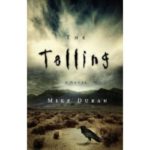The Making Of A Myth, Part 5 – The Use Of Primary Colors
 I wonder what J. R. R. Tolkien would think about Harry Potter. Or Twilight. Or dystopian fantasies like Veronica Roth’s Divergent or urban fantasies like The Black Sun’s Daughter series by M.L.N. Hanover. Would the author of “On Fairy-Stories” be a fan of the darker forms fantasy has taken in the last decade or so? These are interesting questions.
I wonder what J. R. R. Tolkien would think about Harry Potter. Or Twilight. Or dystopian fantasies like Veronica Roth’s Divergent or urban fantasies like The Black Sun’s Daughter series by M.L.N. Hanover. Would the author of “On Fairy-Stories” be a fan of the darker forms fantasy has taken in the last decade or so? These are interesting questions.
Tolkien believed that fairy stories were a means to three particular desirable conditions: recovery, escape, and consolation. Many speculative writers are familiar with his thoughts on escape. I myself have written a number of posts on the subject here at Spec Faith (see for example “What to Make of Dragons, Part 7 – Escapism”). We probably know less about his thoughts on recovery and consolation, however. In exploring what he wrote about the former, I find ideas that suggest how he might react to today’s fantasy.
First, what exactly did Tolkien mean by “recovery”?
Recovery (which includes return and renewal of health) is a re-gaining — regaining of a clear view . . . We need, in any case, to clean our windows; so that the things seen clearly may be freed from the drab blur of triteness or familiarity — from possessiveness. Of all faces those of our familiares are the ones both most difficult to play fantastic tricks with, and most difficult really to see with fresh attention, perceiving their likeness and unlikeness: that they are faces, and yet unique faces. This triteness is really the penalty of “appropriation”: the things that are trite, or (in a bad sense) familiar, are the things that we have appropriated, legally or mentally. We say we know them. They have become like the things which once attracted us by their glitter, or their colour, or their shape, and we laid hands on them, and then locked them in our hoard, acquired them, and acquiring ceased to look at them.
I wonder if this familiarity might not be a serious problem for Christian writers, explaining why our fiction, even our fantasies, seem to lack a freshness. We know the rudiments of our faith, and it is these elemental principles that we realize the rest of the world needs to embrace, so we convey them over and over until they lose some of their power and potency, even for us.
God is a God of grace. Jesus died for our sins. Ho-hum, Christmas again, a celebration of the Incarnation. Familiar terms trip off our tongues with ease, but with less and less meaning. And the concepts find their way into our fiction, but with less and less force.
The need, Tolkien suggests, is recovery, but many writers despair:
Who can design a new leaf? The patterns from bud to unfolding, and the colours from spring to autumn were all discovered by men long ago. But that is not true. The seed of the tree can be replanted in almost any soil . . . Spring is, of course, not really less beautiful because we have seen or heard of other like events: like events, never from world’s beginning to world’s end the same event. Each leaf, of oak and ash and thorn, is a unique embodiment of the pattern, and for some this very year may be the embodiment, the first ever seen and recognized, though oaks have put forth leaves for countless generations of men.
We do not, or need not, despair of drawing because all lines must be either curved or straight, nor of painting because there are only three “primary” colours.
In the same way, Christian writers need not despair because there is only one way to salvation, because there is only one begotten Son of God, because by grace alone may we be reconciled to God. In other words, Truth is not limiting to the writer since it impacts people in different ways. Christians, however, seem to tell the Old, Old Story in an old, old way.
A writer who recognizes weariness of The Same, will inevitably try to break free:
there may be a danger of boredom or of anxiety to be original, and that may lead to a distaste for fine drawing, delicate pattern, and “pretty” colours, or else to mere manipulation and over-elaboration of old material, clever and heartless. But the true road of escape from such weariness is not to be found in the wilfully awkward, clumsy, or misshapen, not in making all things dark or unremittingly violent; nor in the mixing of colours on through subtlety to drabness, and the fantastical complication of shapes to the point of silliness and on towards delirium. (Emphasis mine.)
So Tolkien apparently saw no answer in exploring to the edges (or beyond) of Truth and Beauty. Rather, the great need is Recovery.
Before we reach such states we need recovery. We should look at green again, and be startled anew (but not blinded) by blue and yellow and red.
Being “startled anew” by God’s love, for example, a Christian writer is freed to make old truth shine like a new beacon:
Creative fantasy, because it is mainly trying to do something else (make something new), may open your hoard and let all the locked things fly away like cage-birds. The gems all turn into flowers or flames, and you will be warned that all you had (or knew) was dangerous and potent, not really effectively chained, free and wild; no more yours than they were you.
 So what do you think? Would Tolkien believe that gems turned into flowers or flames in Harry Potter? In Twilight? In dystopian fiction or urban fantasy? Or would he think these things “dark or unremittingly violent” or “mixing of colours on through subtlety to drabness, and the fantastical complication of shapes to the point of silliness and on towards delirium”?
So what do you think? Would Tolkien believe that gems turned into flowers or flames in Harry Potter? In Twilight? In dystopian fiction or urban fantasy? Or would he think these things “dark or unremittingly violent” or “mixing of colours on through subtlety to drabness, and the fantastical complication of shapes to the point of silliness and on towards delirium”?
My guess? He’d see a few gems but a lot of drabness and maybe even some delirium.











































I wrote a blog post last January about this…kind of. Tolkien set out to create a “new myth” for England, and argubly succeeded. But I don’t think it refects England or our world anymore, so I proposed that “Doctor Who” is the modern myth of its country.
As for what Tolkien would say of it…I have some of that here
I believe Tolkien would be troubled by many of the books today that celebrate and glorify darkness – i.e. HP & Twilight. These books live in dark places. Tolkien didn’t celebrate ‘darkness’ in his stories. Instead, he used them to show the light and truth.
Hi, Shawn, thanks for voicing your thoughts on this question. I tend to agree that Tolkien would think a good number of writers have answered their anxiety to write something original with dark stories and “unremitting” violence.
The question I have, I guess, is whether Harry Potter and Twilight would fall into those categories. I haven’t read the latter, but from what I’ve heard, the darkness comes from the exploitation of the human heart — obsession, lust, wanting the forbidden.
In Harry Potter, there is growing darkness as the evil that tried to kill Harry grows stronger and returns. But in the end good wins out. Specifically love wins out.
I agree with Kessie or Kaci — whichever said that Tolkien himself wrote some dark stories. Frodo and Sam expect to die trying to complete their mission. If they fail, the world of goodness will be overrun. Already good men have died, and madness has taken others. A traitor has betrayed his friend and the way to Mount Doom leads through Shelob’s lair. It’s very dark, but not hopeless.
Harry Potter is much the same. Very much the same. So my guess is Tolkien would be a fan of the Harry Potter books. Though Rowling includes a good deal of “magic” just for fun, I think the nature of it is no different than the nature of the magic of the elves or the Ents or rings of power. Both have wizards, some good and some evil, so I doubt if Tolkien would have an issue with that aspect.
Becky
Really interesting article, Galadriel. Thanks for linking to it.
I have to admit, though, that I’m not sure whether you think Tolkien would be a fan of Dr. Who or not. Maybe you could elaborate?
And a follow-up question: if our times are bleak and dark, is it then true that our fantasy should be equally so? That one, I think Tolkien would categorically say, No. In fact his point seemed to be that writers trending toward what we see in fiction today re in need of what he termed recovery.
I wonder if we Christians, who also seem enamored with dark stories, more and more, shouldn’t lead the way by recovering our wonder of God.
Becky
I think Tolkien would say that it fufills the defination of a fairy–surveying the depths of time and space and holding communion with other creatures–but that it has nothing to deny final doom. In that sense, though, it’s more like his Silmarillion–a world that needs a Savior, but cannot find one.
I was going to say he wouldn’t like it–and I still think some of the elements would confuse him, like the sexual morals and blurred morality at time–but in terms of reflecting its’ context, it does a good job. So I think he’d like it.
(Also, I was generalizing with regards to NuWho. Classic Who is more of a legend then myth. First thing I’d say is that Classic Who (or Sarah Jane Adventures) is to NuWho what The Hobbit is to The Lord of the Rings.
I have to admit, I’m quite ignorant about the whole Doctor Who saga. You’ve taught me a lot in you post and comments. Thanks, Galadriel. Interesting comparison to the Hobbit.
Becky
Kaci, Jenni, and I will get you into it eventually.
Well, it’s not because of a lack of interest on my part. It’s a lack of access. Maybe one day … 😉
Becky
I’d argue that Tolkien’s own works were very dark. Just read The Two Towers and Return of the King and see how dark they are. When I first read them, I battled depression the whole time. But eventually, Good triumphs over the darkness. Same for Harry Potter. Sure, it gets dark, but is there light at the end to show darkness’s ultimate defeat? Absolutely.
Now, Twilight is a whole other ball of wax, seeing as it’s romance with fantasy elements. I don’t think there is any good or any evil in Twilight. It’s one giant swath of gray (and the series finale is the most anti-climatic pitiful excuse for a climax I’ve ever read).
I think other authors are far more dangerous than Meyer or Rowling. Phil Pullman in His Dark Materials, which is an utterly compelling and fascinating trilogy, paints a world in shades of black with no light to redeem anyone. The ending is unsatisfying because the main characters are simply screwed forever. The End.
I think Christians need to read more broadly and pick their battles. Harry Potter and Twilight are literary small fry when it comes to dangerous ideas.
Kessie, I just repeated your observation (though I couldn’t remember if I’d read it from you or Kaci) that Tolkien’s own work was dark. I agree.
I’d go so far as to say, however, that Harry Potter doesn’t have dangerous ideas. Of course there is no proclamation of the gospel either, but good — in J. K. Rowling’s worldview, that means love — wins out. There’s nothing there that contradicts Scripture.
The one issue is the pretend — is it OK to pretend that characters called witches and wizards can be good?
Since Tolkien created good wizards, I don’t see why this continues to be an issue — unless, of course, a reader discards all such characters. Rowling took the idea and made it the centerpiece of her sub-created world. The fact that she did so brilliantly explains why the books are so popular, I believe.
Becky
Becky, about wizards in LotR. In Tolkien’s cosmology, Gandalf was an angelic being. I’ve learned that he regretted his use of ‘wizard’ for him and those of his created order. Perhaps I learned of his regret right here on this blog someplace.
Regardless of the term, whether “wizard,” “angelic being,” “Ishtari,” or even “gods” (as the created-being “archangel”-type Valar were called in The Silmarillion), we’d need to address the issue of whether it’s okay to imagine beings with fantastic supernatural powers in another world.
If Tolkien’s wizards (the good ones, anyway) are “servants of the secret fire” with power to work miracles with staffs, a la Moses, and Rowling’s wizards/witches are merely those with superhero-like abilities to harness unseen rules of a parallel Earth — all of whom can use their abilities for good or for evil — whereas “real” “wizards”/”witches” of our world are mere mortals who try to use supposed “magic” from the devil, or their imaginations, to control their lives and manipulate circumstances, can one really say there is a similarity beyond surface-level labels?
Stephen and Becky (not to exclude anyone else),
I was reacting to something in this paragraph written by you, Becky:
“Since Tolkien created good wizards, I don’t see why this continues to be an issue — unless, of course, a reader discards all such characters. Rowling took the idea and made it the centerpiece of her sub-created world. The fact that she did so brilliantly explains why the books are so popular, I believe.”
Tolkien didn’t intend to create ‘good wizards.’ It’s important to clarify in a discussion of what his views might be of Potter and Twilight, what he did imagine in his unique use of the term ‘wizard’; and, that he regretted his use of it. Gandalf and Saruman were Maia. Like holy and unholy angels, one stood against temptation and one fell. In Tolkien’s angelic hierarchy, a Maiar was lower than a Valar, a servant being. It’s important to be clear on these things (I hope I’ve got it all right), because facts are important in themselves, and argument proceeds from using facts with care.
Becky, ‘why this continues to be an issue’ is, and everyone must surely admit this: Rowlings created a world in which good and evil are reversed, that is: it’s good to be a witch but bad to be a muggle. For Christian writers to either not get this or not admit this is puzzling. I’m willing to discuss these things, to perhaps read Potter now!, but in the discussion about these things, people are defensive. Do we feel that if we see/admit such a thing, we’ll start banning/burning books? Or that we’ll be forced to set greater limits on what we read and write?
Stephen, I think it’s unfair to hold something up for contempt, here the fact that magic is real in our world too, by using the term ‘supposedly’. Shamanism and witchcraft are real and and powerful, though I don’t know their exact limits.
Hi, Marie, thanks for engaging in this dialogue. I see you and Stephen exchanged several comments before I got with it. Sorry to be tardy to the party. 😉
I think your observation about Tolkien’s naming Gandalf as a wizard serves to bridge much of the confusion about Harry Potter. I’ve heard as you did that J. R. R. regretted using the word, but use it he did, though in his mind he was not creating a character that entered into the practices the Bible forbids. We know this from what he said about the characters identified as wizards in the story, but we also know by the actions Gandalf took. He was not possessed by a higher power, did not apply to such a power for his own abilities, did not owe loyalty to such a being. He also worked for good and against evil.
I suggest, J. K. Rowling also did not create in her good wizards, characters that entered into practices the Bible forbids. Harry was not possessed by a spirit to gain power, did not evoke a spirit to create spells, nor did he declare loyalty to such a being. He also worked for good and against evil.
I believe Stephen mentioned the issue about wizards versus muggles. I’ll just say that when I saw the first movie, which I did before reading any of the books, I was initially uncomfortable with what I thought was going to be a “them against us” scenario. Lots of humor at the expense of the foolish people who were Harry’s foster family, and I didn’t (still don’t) like it. But it quickly became apparent that their muggle-ness was not the issue. It was their own wrong-headed views and their unfair treatment of Harry — none of which gives a Christian a reason to laugh at them.
But is that a reason to reject the movies/books?
I’d have a hard time finding material to read or view if I was holding out for stories with perfect theology and perfectly behaving characters.
Instead, it appears to me that this secondary muggles issue (and from some Christians, another issue — the idea that Harry is disobedient and encouraged to be so by those in authority [which brings up the secondary question, is it disobedience if those in authority are behind him?]) is a fall-back position to argue against the books in the face of a clear demonstration that Harry Potter is no more a real-world wizard than Gandalf is.
As to your reading the books, I wish you could. It’s the best way to make up your own mind — reading with Bible in hand to measure the values, principles, and particulars. But of more importance is your subjection to your husband, and I applaud you for being sensitive to his concerns. Perhaps you could explore them together some day.
Becky
My suggestion is that perhaps you need to read the series, not because of the fallacious argument that “you can’t know about it or criticize it unless you’ve read it!” (I hate it when people say that, and I heard this frequently when I dared critique The Shack based on accurate information I’d heard about it!) but because the exact opposite theme is a crucial message of the story.
Rowling couldn’t be clearer throughout the series that Muggles are not bad or inferior to wizards; in fact, it is the evil villain who believes this and tries to exterminate supposedly inferior “non-magic” people, racism-fashion.
Similarly, there was at least one (I am sure!) well-meaning Christian leader going around, after the Chamber of Secrets film released (in 2002), claiming falsely that the book and film glorified being possessed by an evil being. My wife attended one such presentation at a local library, back then, and was later shocked at how vehemently the book, and film, condemned this. Sadly, the question then becomes: was this leader totally ignorant, or deceptive?
I think that is true, and I hope I haven’t come across that way. Some, for example, go so far as to place Potter on exact par with Narnia or Lord of the Rings — I wouldn’t do that, though I don’t mean to discount that Christian themes in the best stories are very contagious, and Rowling did inherit that and echo these themes in her tales, intentionally or unintentionally.
My own thought is that some folks — not all! — will simply be inconsistent with what they already believe and practice in other areas. Potter is an example of this, and a great conversation-starter. How one reacts to it will often affect, and interrelate with, several other issues as well.
Lo siento; I don’t mean to discount that at all. Occult junk is very real and very dangerous — but somewhat less dangerous, at least in its unadulterated and Satanic form, for the Christian who has already been saved by Christ and wants to obey Him and grow in the Spirit’s holiness. (As for “Christian-ized” occult practices and mysticism, well, televangelists and many “nonfiction” Christian books prove those are very real dangers to professing Christians!)
And as for those limits, I would be very skeptical of any occult practitioner who claims to be able to “apparate,” or make things float, or shape-shift via cauldron-brewed potion, or et cetera. All this is the “magic” of folklore and stories, and in my view Christians do a disservice in their battle against the truly worst deceptions of Satan by conflating them with made-up “magic.”
Conflated? Me, I’m deflated. Actually, femininely, close to tears. I’ve spoken what I believe about a crucial thing. Sorry I got facts wrong. The crucial thing is that in this discussion we should certainly look at Tolkien’s intent, which I know you all get.
I’ll probably not read the books because Tom would be, to use a term from my own youth culture, legitimatey freaked out. He shouldn’t have to be. Besides, I am a slow reader, so I’d probably be just finishing the books at the Lord’s return:
I’ll end in rhyme
because it’s time
to always be careful
and persistently prayerful
with what we say and how.
Yeah, I agree.
When I first read Harry Potter, I picked up Sorcerer’s Stone and the first Redwall book at the same time.
Now, how come nobody squawks about Redwall? They live in an abby and never once mention whatever God they serve. All of their devotion goes to Martin the Warrior, who we find out in later books was sort of a paladin. And when they pray, they give thanks to Nature.
I mean, hey, demonize wizards all you like, but if folks are going to throw out Harry, they have to throw out Matthias and Martin and all the other Redwall characters.
Ah! Don’t know Redwall. Martin is then a kind of Dalai Lama?
No, he’s just a hero who they all look up to. Redwall is very fluffy. It’s also talking animals. Mice, hares, hedgehogs, moles, etc. Mice are usually the heroes, although some books like Salamandastron feature the badgers and hares.
Shawn: As some other commentators have said afterward, I’m not sure these two can be fairly conflated. Though I know some readers might abuse Potter to endorse their own dark desires, I’d also argue it’s contrary to the creator’s intentions, and the clear direction of the entire story. And as our previous guest columnist said, Christians should read anything else, including Potter, in the same way we read and “interpret” Scripture — that is, we must practice a consistent hermeneutic.
I guess I’d simply ask: what in Harry Potter “celebrates and glorifies” darkness?
Mentioning the story’s magic can’t count, because a) similar magic is key in other stories that all of us enjoy, and b) real-world darkness does not include the made-up magic of Potter, such as “apparating” between locations or riding on flying brooms.
From Kessie:
That matches what I’ve heard. With one disclaimer about Twilight — that even it is a copy of a copy of a copy of legitimate human desires to be loved — I would agree about its darkness and seeming glorification of at least “gray” morality (which I mean as very faint praise). This seems best illustrated by this popular and thrown-together graphic:
… And is most recently repeated by none other than George “Sulu” Takei, star of Star Trek, who was trying to “broker peace” between tongue-in-cheek mocking videos by William Shatner, for Trek, and Carrie Fisher, for Star Wars. (Slight content caution about the below embed; however, Takei kept things clean, and didn’t need to get as nasty as Shatner and Fisher were even in their “just for fun” barbs!)
Again, I do believe one can use this message to point to the only true Lover of anyone: Christ. But in doing so, one needs to subvert the main point of Twilight, and cannot easily point to the story’s resolution as a reflection of Christ’s love for His Church, or its individual members (which Potter does reflect, by its story’s end).
Also, Jesus doesn’t only love us because He doesn’t know what we’re thinking and our blood smells good.
LOTR is much darker than anything in Harry Potter. By far. Much grittier. Edgier. Harry’s scar is healed in the end of the Potter books; in LOTR, Frodo never recovers. Rowling said the Potter books are about death, but ultimately they are about resurrection. Tolkien also said his books are about death and the desire to escape it. “But I should say, if asked, the tale is not really about Power and Dominion: that only sets the wheels going; it is about Death and the desire for deathlessness.” Tolkien goes on, noting that “Death is not an Enemy! I said, or meant to say, that the ‘message’ was the hideous peril of confusing true ‘immortality’ with limitless serial longevity. Freedom from Time, and clinging to Time. The confusion is the work of the Enemy, and one of the chief causes of human disaster.” (From Tolkien, Letters). In contrast to Potter, where Harry is able to remain faithful after being greatly tempted, Frodo fails in the same place and succumbs to his temptation. They illustrate two different sides of the same Christian experience, two responses to temptation.
Great observation, Adam. Apart from the ending, though, I don’t know that there’s much difference between the two as far as darkness goes. There’s danger from without and from within, the stakes are high individually and for the world, people die along the way, and in the end only the few faithful friends walk with the protagonist to the edge of darkness before they too are left behind. In both, evil grows steadily stronger and is on the brink of winning. All teeters on a slim thread of hope. Apart from the end, they are quite a bit alike in the darkness area, I think.
Becky
Becky, I think it’s great to discuss how Tolkien might view current fantasies, even though we’re obviously making more or less informed guesses. It’s great to see his views taken from this essay and his letters, because these are some places where his ideas are found. It’s hard to infer them from his fiction only.
By the way, it was enlightening to see Potter and Twilight put in their very minor places as far as truly dark fiction goes! So thank you, Kessie!
Liking Potter might have been a problem for Tolkien, if we consider an analogy. Would he have applauded a series set in the orcian culture, in which some sterling orc had a meaningful, heart-warming, exciting adventure there; and, in which the elves were depicted as, let’s say, self-interested snobs, and far less in every way than THE ORCS?
Tolkien’s ideas would be well-informed, because he understood literature, the history of ideas (some), and the nature of genre so well; although, his thoughts are never to be seen as the last word on anything, right?
Obviously, as a writer of fantasy and a poet, he understood dark things, and their peculiar lasting appeal. That’s why he could write with such insight about the One Ring of Power, which tempted everyone, if I’m remembering rightly, except Strider/Aragorn (who is a Christ type). Because he understood darkness so well, and even liked some of it, I believe, this led to some interesting elements in the history of the elves, that is, that these first-born of ME awoke to life in a starlit, not a sunlit word. This wasn’t simple chronology but meaning, I feel.
About darkness in Tolkien, consider Beren and Luthien, as well. Beren first saw Luthien dancing in the forest at night; together they set out on a quest into an underworld; together they moved through ME as changelings for a time.
If he here to adjudge Potter and Twilight worthy because of their artistry and ideas, if he saw them as glimpses of the Greater Story, he might have enjoyed them. And he might have laughed out loud at Potter. Though getting past calling evil good and good evil would have been difficult for him, I think.
Wish we could know. At any rate, don’t you think he would have enjoyed the discussion, and would have had much to teach us and some things to learn?
Marie, you just gave me such a fun image — of all of us piling into the pub where the Inklings met and settling in to hear J. R. R.’s thoughts of Harry Potter. How fun that would be.
Once again, I think you’ve given us a really helpful way of looking at the discussion when you said
The key here is that “orcian culture” is pretend. There are, of course, no orcs. Consequently, if an author wanted to consider the orcian culture as neutral and the particular orcs as good or bad, it would be a fair literary twist. That’s precisely what the creators of Shrek did. Ogres have been evil creatures in fairy tale lore, but the writers, though keeping them ugly by human standards, did away with the idea that they were evil or cruel by nature.
In the same way, Harry Potter isn’t a book about one “orc” who had a meaningful, heart-warming, exciting adventure, but about orcian culture, in which each orc had to decide to opt for evil or for good. And the story is about self-sacrifice saving the world, the “orcian” and the “non-orcian” world.
The bottom line for me, Marie, is that I would be right with you if Harry Potter was about a Satan-empowered wizard touted as “good.” We would indeed have a story in which evil is called good. In essence that’s exactly what Phillip Pullman did. God was the great evil to be defeated. That indeed is evil calling itself good, and that we should stand against!
Becky
Becky, Stephen, I enjoyed your responses. But your thoughts are so prolific that I feel like a kid running home after school, tagging along after the bigger kids, while dropping and fumbling her load of books.
Good responses! I’m exhausted…
I absolutely love that image!
Thanks, Galadriel! We all probably feel this way at times.
[…] written about the trend toward darkness that current fantasy has taken (see for example “The Making Of A Myth, Part 5 – The Use Of Primary Colors,” “Too Dark?” and “Exploring Darkness Or Exploring Light.”) Urban […]